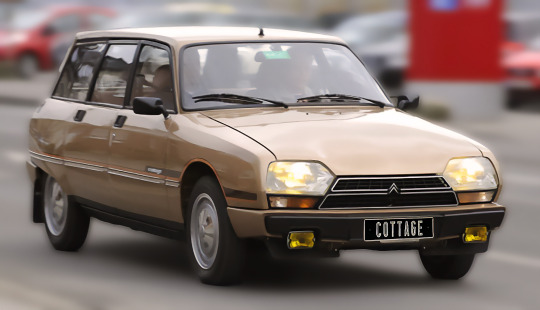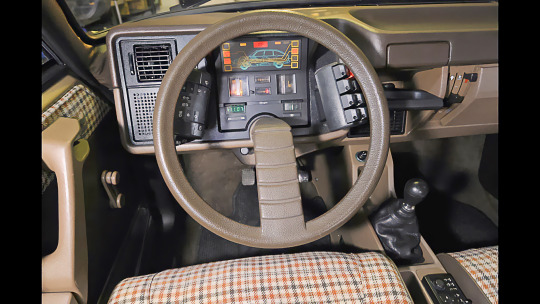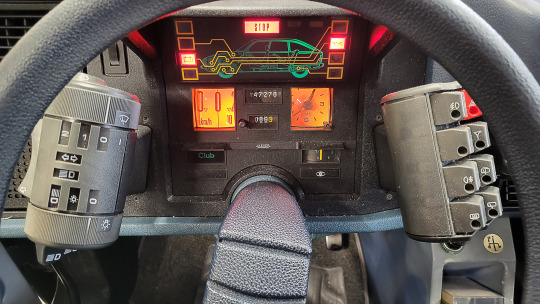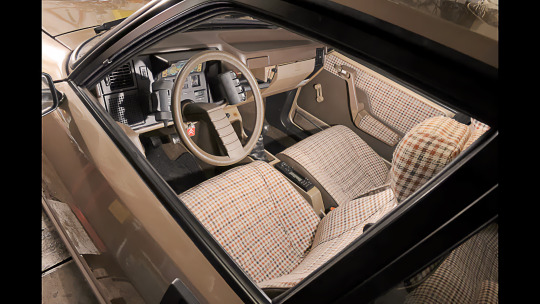#auxiliary engine
Explore tagged Tumblr posts
Text

Repair of Crankshaft Daihatsu 6 DK-20 In Greece
A Greek company contacted RA Power Solutions regarding a problem with the auxiliary engine of their Daihatsu 6 DK-20. It was reported that the bearing of crankpin no.3 got damaged. Technicians on board the vessel inspected the crankshaft. The hardness of crankpin no.3 was observed within limits between 210 to 240 HB scale. After a thorough cleaning of crankpin No. 3, the MPI test was done, and no cracks or abnormalities were observed. Crankpin no. 3 was subject to dimensional inspection. Our equipment can be placed on the crankpin or main journal diameter, which has a bearing width of as small as 40 mm, allowing RA Power Solutions to repair the crankpin with a bearing width of only 78 mm. With this advanced technology and process, we have successfully repaired the repair of crankshaft of Daihatsu 6 DK-20. For more information on bearings for Daihatsu engine and Daihatsu crankshaft repair, contact us at [email protected] or [email protected] or call us at +91 9582647131 or +91 9810012383.
#Repair of Crankshaft#auxiliary engine#Daihatsu engine repair#Daihatsu crankshaft repair#bearings for Daihatsu engine#crankshaft grinding
0 notes
Text

https://shipservices.id/alarm-and-monitoring-system/
1 note
·
View note
Text
Theed Spaceport



STAR WARS EPISODE II: Attack of the Clones 00:38:26 - 00:38:35
I probably missed a few ships at the spaceport, but rest assured they’re unidentified vessels. Kinto points out that some of the objects in the spaceport just cargo containers, and also corrected me on the name of the Action VI bulk freighter. Thanks Kinto!
Thanks to Spookywilloww on Wookieepedia for clueing me into the Spaceports spread in the Complete Locations book for further identification of objects in this scene. Previously I was only using the diagram of the spaceport from the DeAgostini Star Wars Encyclopedia #60: Naboo.
I also removed the identifications of the DSS-02 shield generators (the model seen in The Empire Strikes Back) as they're never actually clarified as the same, only labeled as "auxiliary power generators" in Complete Locations.
They're possibly similar generators also produced by Kuat Drive Yards.
#Star Wars#Episode II#Attack of the Clones#Naboo#Theed#unidentified Action VI bulk freighter#unidentified symbol#unidentified starship#unidentified YT-1300 light freighter#unidentified vessel#unidentified Taylander shuttle#unidentified N-1 starfighter#unidentified droid#Theed Spaceport#Jendirian Valley#Theed Royal Hangar#Plasma Refinery Complex#Cliffs of Theed#power generator#docking pier#Gallo Mountains#Solleu River#Dyne 2577 radial sublight engines#cargo module#auxiliary power generator#maintenance hangar#space traffic control#terminal
2 notes
·
View notes
Text
Main and Auxiliary Engine Spares, Auxiliary Engine spare parts in Alang
If you are planning to buy Main and Auxiliary Engine spare parts from Alang then AKG Marine is the best company to buy from. Contact us for price and info

1 note
·
View note
Text
Being the largest marine diesel engine manufacturer, Weichai makes auxiliary engines that are built to perform in demanding conditions.
0 notes
Text
Daihatsu 6DK-20 Auxiliary engine crankshaft was reported to be damaged due to the seizure of the bearing. The vessel was not permitted to cross the Suez Canal by the authorities due to Non-operation of the auxiliary engine. RA Power Solutions maintains a stock of 6DK-20 engines, up to 4.00 MM undersize bearing, and have saved number of crankshafts from rejection. For more information regarding crankshaft grinding services, please contact us at [email protected] or [email protected] or call us at +91 9582647131 or +91 9810012383.
#Daihatsu 6DK-20 Auxiliary engine crankshaft#crankshaft grinding services#Daihatsu Crankpin Polishing#Daihatsu 6 DK-20 Crankpin Grinding#Supply of Crankpin Bearing#Grinding of Daihatsu DK-20 Crankpin#Repair of Damaged Crankpin#Daihatsu 6DK-20 Crankshaft Repair#onsite crankshaft repair
0 notes
Text
youtube
#thread repair engine block by metal stitching#engine block repair by metal stitching#metal stitching locking#metal locking and stitching#thread repair onsite by metal stitching#threads in marine engine and auxiliary engine compressor#Youtube
0 notes
Text
0 notes
Text
Overhauling of Marine Engine
Experience top-tier overhauling of marine engine with RA Power Solutions. Our expert team ensures your vessel's heart runs at peak performance. Don't compromise on safety and efficiency – trust us for comprehensive engine refurbishment. Set sail with confidence, choose RA Power Solutions today. For more details, contact us at [email protected], 0124-425-1615, or +91-9810012383.
#Overhauling of Marine Engine#auxiliary engine maintenance#maintenance and repair services#main engine overhaul#engine overhaul
0 notes
Text
ieytd2, i was live streaming for some of my friends to see me play the game blind. we make it to eaves drop, and thus far i haven't died in any of the previous missions.
i'm taking an absurdly long time on the mission out of fear. i'm talking like, an hour+, and i haven't even found the mimic mask yet. i'm fiddling with one of the desk drawers (the one with the rope-based trap), and i am confident that i see something hidden in the drawer (which i do. i see the rope-based trap)
all of my friends tell me that i'm being paranoid. i tell them that i see something in there (which i do. i see, as aforementioned, the rope-based trap). they tell me to open the drawer. i say "fine", and yank the drawer open as hard as possible, blowing up into several pieces of gore and viscera
what was your most embarrassing death in I Expect You To Die (any of the games) GO
#also shout out to the time i was replaying ieytd1 for one of my friends and we were on death engine#solaris made a rude comment and i told her to be nice and my friend said “you should hit her with the auxiliary arm”#which sounded like a really good idea#up until i fully processed the giant magnet hurtling towards the singular sheet of glass protecting me from the abyss of space#and also my face
102 notes
·
View notes
Text
Auxiliary and main high-capacity engines that are mounted on a ship or on land are repaired and maintained by RA Power Solutions Pvt. Ltd. More than 1500 ship auxiliary engine overhauls have been completed by our company. All parts replacements and repairs for diesel engines are done with a warranty. Contact us by phone at +91-9582647131 or +91 9810012383, or send an email to [email protected] if you need repair, maintenance, or overhaul of a diesel engine or Overhaul & Maintenance of a MAN B&W engine.
#Overhaul & Maintenance of a MAN B&W engine#Maintenance of a MAN B&W engine#Auxiliary and main high-capacity engines#ship auxiliary engine overhauls#main high-capacity engines
0 notes
Text

Aircraft engine types ✈️
✈️Turbo-Shaft: Used in helicopters and some fixed-wing aircraft, it features a compressor, combustion chamber, and turbine. The turbine drives a power shaft via a free (power) turbine, which powers the rotor or propeller through a gearbox, rather than producing direct thrust. Exhaust gases are expelled separately.
✈️Turbo-Prop: Similar to a turbo-shaft, it powers a propeller via a gearbox. Air is compressed, mixed with fuel, and burned in the combustion chamber. The turbine extracts energy to drive the propeller, with some exhaust thrust. It’s efficient for low-speed, short-range flights.
✈️Turbo-Fan: Common in commercial jets, it has a large fan at the front, high- and low-pressure compressors, a combustion chamber, and turbines. The fan accelerates air around the core (bypass air) for thrust, while the core produces additional thrust via exhaust. It’s efficient for high-speed, long-range flights.
✈️Turbo-Jet: An older design, it compresses air, burns fuel in the combustion chamber, and expels exhaust through a nozzle for thrust. It lacks a bypass fan, making it less efficient but capable of high speeds. Used in early jet fighters and some supersonic aircraft.
✈️Ram-Jet: Operates at high speeds (Mach > 1), using forward motion to compress air in the inlet. Fuel is injected and burned in the combustion chamber, and the exhaust is expelled through a nozzle for thrust. It has no moving parts but only works at high speeds.
✈️Scramjet: A supersonic combustion ramjet, designed for hypersonic speeds (Mach > 5). Air enters at supersonic speeds, is compressed, mixed with fuel, and burned in a combustion chamber, with exhaust expelled for thrust. It’s used in experimental hypersonic vehicles.
✈️Rocket: Uses stored propellants (fuel and oxidizer) in a pressure vessel. Propellants are burned in a combustion chamber, and the high-pressure exhaust is expelled through a nozzle for thrust. It operates in space since it doesn’t rely on atmospheric oxygen.
✈️Gas Turbine: Similar to a turbo-shaft, it’s used for power generation or auxiliary power units. Air is compressed, burned with fuel, and the exhaust drives a power turbine, which can power generators or other systems. Bleed valves and discharge ports manage airflow and pressure.
Each engine type is optimized for specific applications, balancing efficiency, speed, and operational environment.
@Airmainengineer via X
830 notes
·
View notes
Text

[image description: chart titled Talk Like A Technician: The Use of Technobabble.
Technology in Star Trek is complex and works in scientific concepts and principles that are far beyond what the majority of Players and Gamemasters are knowledgeable in. Throughout the collected media, Starfleet officers discuss technology using terms that most Players are not going to know. Instead of expecting Players to study and memorize technical manuals and reference books that have been published over the years we've provided an easy way to talk like a Starfleet engineer. Anyone can do "technobabble"!
To use the chart simply gather and roll d20s and consult the chart below for technical new terms and concepts.
Occasionally portions of the chart may not be applicable to the scene or circumstance. In that case simply omit that portion of technobabble!
The chart has six columns, Roll, Action, Descriptor, Source, Effect, and Device. Each has 20 rows.
Roll: numbers 1-20
Action: refocus, amplify, synchronize, redirect, recalibrate, modulate, oscillate, intensify, nullify, boost, reverse, reconfigure, actuate, focus, invert, reroute, modify, restrict, reset, extend
Descriptor: microscopic, macroscopic, linear, non-linear, isometric, multivariant, nano, phased, master, auxiliary, primary, secondary, tertiary, back-up, polymodal, multiphasic, tri-fold, balanced, oscillating
Source: Quantum, positronic, thermionic, osmotic, neutrino, spatial, resonating, thermal, photon, ionic, plasma, nucleonic, verteron, gravimetric, nadion, subspace, baryon, tetryon, polaron, tachyon
Effect: flux, reaction, field, particle, gradient, induction, conversion, polarizing, displacement, feed, imagining, reciprocating, frequency, pulse, phased, harmonic, interference, distortion, dampening, invariance
Device: inhibitor, equalizer, damper, chamber, catalyst, coil, unit, grid, regulator, sustainer, relay, discriminator, array, coupling, controller, actuator, harmonic, generator, manifold, stabilizer.
/end id]
269 notes
·
View notes
Text

The Adolf Vinnen was a five-masted topsail schooner built in 1922 by Friedrich Krupp Germaniawerft in Kiel, Germany, for the shipping company F. A. Vinnen & Co. Measuring approximately 79.9 meters in length and 10.4 meters in beam, the vessel had a gross register tonnage of 1,840 tons. Designed for both sail and auxiliary diesel propulsion, it featured two 350-horsepower diesel engines.
On February 9, 1923, during its maiden voyage from Kiel to Barry, Wales, the Adolf Vinnen encountered a severe gale near the Lizard Peninsula in Cornwall, England. The storm drove the ship ashore at Bass Point, leading to its wreck. The Lizard lifeboat responded promptly, and all 24 crew members were safely rescued using a breeches buoy from the cliffs above the wreck site. The Adolf Vinnen was notable for being the last large sailing ship wrecked in the Lizard area. Today, the remains of the vessel lie in approximately 12 meters of water, attracting divers interested in exploring its submerged history.
94 notes
·
View notes
Text







Citroën GSA Break Cottage, 1983. A special edition of the GSA estate that utilised the alloy wheels and some trim items from the GSA Pallas saloon. Like all LHD GSA models it featured a dashboard with auxiliary controls on pods that could be reached by fingers without moving hands from the steering wheel. The speedometer was on a rotating drum. It was powered by a 1,299cc air-cooled flat-4 engine
#Citroën#Citroën GSA#Citroën GSA Break#Citroën GSA Break Cottage#special edition#1983#1980s#boxer engine#air cooled#long roof#estate car#station wagon#aerodynamic#cottage#alloy wheels
248 notes
·
View notes
Text
Pit-Born
Angron x Unamed Person (2nd person POV)
Authors note: Angron/World Eaters ≡ New Hyperfixation. This was kind of a "character warm-up". I wrote a 3rd person perspective too (〃ω〃) will probably post it on here or on AO3...
Chapter 1: Old Blood
It started the same way it always did — with screaming and metal.
The forge-pit echoed like a tomb full of dying engines. Down here, sound didn't travel clean — it rattled, bounced, came back wrong. You could hear a chain whip crack a hundred meters away and still not see who screamed.
You didn't look anyway.
That was Rule One: Don't look. Don't listen. Don't care.
You shoved another data-slate into the auto-filer, its screen cracked, half the glyphs glitching. It smelled like promethium and charred bone.
Not the worst thing you’d filed this week.
The Overseer's boots scraped overhead — heavy, servo-reinforced. You tensed on instinct. Not because he always hit people.
Because sometimes he didn’t.
And that was worse.
You could still feel last week’s bruise where he’d leaned in real close and whispered, “Got a sharp tongue on you, scribe. We'll see how long it stays attached.”
You hadn’t flinched.
You just smiled, right in his rebreathered face, and said, “With respect, Overseer, I’m the only one here who can read the requisitions. Unless you’d like another thousand barrels of corpse starch instead of ammo.”
That had earned you a full day scrubbing latrines.
Still worth it.
---
Your cot — if it could be called that — was a sheet of rebar strung between two rusted wall-beams, up in the tech-shed above the arena. The pit was always visible. Always audible. The noise of violence was your lullaby.
You'd long since stopped waking up at the sound of bone breaking.
You'd been born on a ship like this — or maybe it was a hive, or a mining rig. Honestly, it didn’t matter. They all smelled the same. Sweat. Shit. Cheap oil. Despair.
You had no family. Just bruises with dates on them and the memory of learning to dodge a fist before you could read.
Your first language was Low Gothic, spoken through cracked teeth.
Your second was silence.
Your third — learned in the shadows, in whispers — was High Gothic.
You memorized texts like other kids memorized the sound of their mother’s laugh.
You didn’t have one of those.
But you had a perfect copy of the Imperial Hymn etched into your skull, and you could translate six dialects of tribal war-speak from memory.
That made you useful.
And in this place, useful was the closest thing to safe.
---
You were hunched over a dataslate when the click-hiss of metal toes on steel drew close.
You didn’t look up.
Most people looked when Astartes entered a room.
You’d learned early that looking just made it easier for them to decide where to hit you.
The voice that followed was dry. Precise.
A vox-filtered growl wrapped in High Gothic.
"Subject Delta-9-Zeta. Report."
That was you.
Not your name, of course. You didn’t have a name — just a tag on your dataslates and a serial number on your file.
You didn’t stand.
Just looked up slowly, let your gaze drag over the towering figure in red and brass plate. He wasn’t a full Astartes — not anymore. An old veteran, maybe. One eye augmetic, one hand missing.
More administrator than killer now.
That made him almost tolerable.
"Yes?" you said, dry as reprocessed rations.
"Your assignment has changed," he said, ignoring your tone.
Your heart ticked faster — just once.
Reassignment was never good.
"You’re being deployed with the XII Aggression Fleet. Oversector Caduceus."
Your stomach twisted. That was Eater territory.
"Interpreter-class auxiliary," he went on. "You’ll serve under Primarch command."
Silence.
You blinked.
Then blinked again.
"I’m sorry," you said, voice flat. "I thought you said Primarch command. I must’ve inhaled too much ceramite dust. Would you mind repeating that?"
He didn’t.
He just handed you a slate with the orders stamped in blood-red ink.
You read it once.
Twice.
Then let out a low, bitter snort.
"So what was it, then?" you muttered. "Did I piss off someone important? File the wrong report? Fuck the wrong officer?"
"Your reassignment is classified," he said. "Report to Dock H in one hour. You will be armed with a Rosette, an auto-transcriber, and a field lexicon. May the Emperor protect."
He turned and left before you could ask what language the Eaters even spoke.
---
You sat there for a long moment, staring at nothing, the data-slate still clutched in your hands.
You felt nothing.
Or maybe everything, just compressed into a needlepoint of white static.
You’d survived pits. Overseers. Starving.
You’d survived Astartes who treated mortals like flies.
You’d survived by being small, useful, and forgettable.
And now they were throwing you to him.
Angron.
The Butcher.
The Warhound.
The broken thing the Emperor couldn’t fix.
You laughed.
Just once.
Short and sharp and not very sane.
"Fuck me sideways," you muttered, dragging your hands down your face. "Guess it’s a good day to die."
You stood, grabbed your satchel, and walked toward the last job you’d ever take.
---
There was dust in the air, curling like smoke, even though nothing was on fire.
Not yet.
The forge-hold always looked like it was dying, but it never did. It just sagged. Creaked. Bled from its vents like an old animal too stubborn to fall over.
You walked slow, hands in your coat pockets, head down just enough to avoid notice — but not enough to look weak.
The air was thick with machine oil and ash. Someone was getting beaten two corridors over. You could hear the crack of a fist. The small, wet grunt of impact. The quickening rhythm. Then silence.
You didn’t flinch.
You didn’t even turn your head.
That was just Tuesday.
---
You passed the med-station loading vent — the one that smelled like shit and boiled antiseptic — and nearly missed him.
Small thing.
Pit boy.
Maybe twelve? Maybe less. Hard to say, when hunger took years off your face and added ten more to your eyes.
He was crouched under a rusted console unit, shirt drawn tight to his ribs like it could keep his bones from falling out. His mouth was open a little — not begging. Just breathing wrong.
You walked past.
Then, without looking, reached into your coat and palmed two protein tabs from your stash.
Nothing fancy. Just dry, chalky, corpse-reclaimed synth meat. The kind that kept your stomach from eating itself.
You dropped them by his foot as you passed.
Didn’t stop.
Didn’t look.
Didn’t say a fucking word.
He wouldn’t either.
Not here. Not if he wanted to keep them.
But as you turned the corner, you felt it —
that burning little spot between your shoulder blades, where his eyes were pressed like a brand.
You told yourself it was nothing.
That he'd sell them.
That he'd die soon anyway.
You didn’t stop walking.
But your jaw was tight when you reached the lift.
---
The locker room was empty when you slipped in.
Good. You hated witnesses. Especially the quiet ones.
The overhead light flickered, casting sharp silver across rows of dented lockers, a cracked tile floor, and your rust-stained cot wedged up in the corner where the wall never quite stopped leaking.
You didn’t sit.
You just pulled your coat off and hung it on the dented hook that barely held weight.
Your fingers worked on instinct — removing your worn gloves, checking your satchel’s seals, running diagnostics on your auto-slate.
Busy hands made a quieter mind.
But it crept in anyway — the thought you’d been avoiding all day:
You were leaving.
Soon.
For the XII Aggression Fleet.
For him.
The Butcher.
You exhaled through your nose. Rolled your eyes at nothing.
Then you moved toward the locker.
The back one. The one no one else touched.
It took a kick to open.
You liked that about it.
Inside:
One clean dataslate
A bent stylus
Half a rag stuffed with inksticks
A folded rag you sometimes used as a pillow
A shard of mirror, metal-backed, scavenged from an old downed servitor casing
You pulled it out and turned it in your fingers.
It still had a little rust at the edges.
Still smelled faintly of oil.
You raised it.
Looked.
Your reflection was...
Fine.
You looked fine.
Sharp face. Straight mouth. Dark-ringed eyes. Scar across the bridge of your nose where someone had slammed your head into a filing desk last year.
You didn’t remember what for.
You didn’t wince.
You adjusted your sleeves.
The red thread peeked out — fraying, thin, wound twice around your left wrist.
Not a bracelet. Not anything.
Just… there.
You didn’t remember where it started.
You’d replaced it years ago, probably.
But it was the same color. Always that color.
And it stayed.
But your eyes drifted — just a little — to the hollow under your collarbone, where the skin still bore the ghost of a branding scar.
They’d burned the designation into you at seven.
Later, they reassigned you. Gave you the Rosette.
They never scrubbed the mark.
You ran your fingers over it, once.
Then opened your satchel and pulled out the chain.
The Rosette gleamed, faintly. Cold.
You slipped it over your head and let it settle against your chest like a second spine.
Interpreter.
Liaison.
Disposal.
You smiled at yourself — a tired, crooked thing.
"Dead girl walking," you murmured.
The mirror didn’t argue.
--
The walk to Dock H felt longer than usual.
You told yourself it was the weight of the satchel. The ache in your calves. The extra rations you slipped into the locker for the kid — even though you knew he’d be robbed by nightfall.
It wasn’t the fear.
You didn’t do fear.
Not anymore.
Just… managed expectations.
The corridors stretched on, pipe-lined and blistered with rust. The scent of blood and reek-oil clung to everything. The walls sweated moisture that wasn’t water.
You passed two tech-priests arguing in Binaric over a servitor with a bent spinal frame.
You nodded. They didn’t nod back.
Good.
It meant you were still invisible.
---
Until you weren’t.
The World Eaters came around the corner like a pressure wave.
There were four of them — no escort, no fanfare. Just blood-steam and footfalls that shook the grating under your boots.
They didn’t march.
They stalked.
Armor painted in drying gore. Symbols carved into shoulder plates. Chainaxes clipped at their hips like talismans. Helmets off. One dragged a flayed corpse behind him, trailing blood like a bridal train.
You moved to the wall automatically — you weren’t suicidal — but you didn’t shrink.
Not anymore.
Just… still.
Small.
A shadow in the oil-smoke.
And then one of them looked at you.
Long, slow.
His head tilted, like a predator seeing a noise, not prey.
His face was war-scarred, with ritual cuts down both cheeks, teeth filed into points.
He didn’t snarl.
He smiled.
Just like he was already imagining how you’d look when you stopped breathing.
It was worse than a snarl.
The one behind him said something low — in a dialect you almost recognized. It sounded like Low Gothic, if Low Gothic had been spoken underwater by a dying god.
You caught a single word:
“Pretty.”
Your jaw locked.
You didn’t blink.
The third one — older, scarred across the throat, with a chainaxe in one hand and a ribcage strapped to his back like a trophy — let out a low chuckle.
It rattled your bones.
None of them stopped.
They passed like smoke through flame — too big, too loud, too close.
And when they were gone —
when their scent still burned in your nostrils like hot metal —
you realized your hands were fists.
Your pulse throbbed in your ears.
Your throat was dry.
And your left hand was pressed to your wrist.
To the thread.
Still there.
Still tight.
You released it.
And breathed.
Once.
---
The dock loomed.
Metal towers stretched overhead like broken ribs, lights flickering red in the fog. Servitors clanked in dull circles, unloading crate after crate of munitions, medicae supplies, and human bodies wrapped in tagged cloth.
No one greeted you.
A grox-skinned quartermaster waved you toward a loading bay with a metal stylus like he was swatting a bug.
You stepped into the hangar’s belly.
And froze.
The ship squatted on the far platform like a beast half-woken from hibernation.
Brass-plated. Bladed. Covered in kill-scars.
The hull was decorated in chains. Bodies. Rusted prayer plates hanging like teeth.
Red banners snapped in the oil-wind, each one stamped with a single glyph:
XII. AGGRESSION.
And there, carved deep into the prow —
etched like a curse into the bone-metal surface —
THE WARHOUND.
You felt your stomach curl.
Your knees didn’t buckle.
But they wanted to.
You adjusted your satchel.
Pulled your coat tighter.
The chain around your neck was cold.
The thread at your wrist, warm.
You took a step forward.
And the doors swallowed you whole.
---
The air inside the Warhound was colder than you expected.
Not freezing — just sharp.
Sterile.
Like someone had cleaned it, but only after too much had already rotted inside.
The ramp sealed behind you with a hiss and a hydraulic moan, drowning out the dock’s chaos.
You stood there a moment, letting your eyes adjust, heart pounding too close to your throat.
No welcome party.
Just the groan of metal bones and the sound of your own breathing.
---
The first corridor was long, narrow, barely lit — a transport vein designed for bulk cargo and soldiers too massive to care about human comfort.
You walked it like a ghost.
Boots too light. Shadow too small.
The walls were not quiet.
You could hear them.
Something. Someone. Screaming.
Deep down in the ship’s gut.
Not pain.
Pleasure.
Or whatever passed for it here.
Metal screamed too — engine parts groaning in their sockets, servitors shuffling, plasma lines weeping gas like breath.
You passed a hanging banner — black leather, red ink, stamped with the sigil of the World Eaters.
A single glyph burned into the surface beneath it, carved with a blade instead of inked:
OBEY.
You didn’t stop walking.
But your pace slowed.
---
They didn’t bother showing you to your quarters.
Just dumped coordinates into your slate.
Barracks wing. Deck 7C. Assigned scribe’s cell.
You found it after two wrong turns and one narrow hallway lined with skulls that might not have all been decorative.
The door didn’t open until you swiped your Rosette — and even then, it groaned like it hated the idea of letting you inside.
You stepped into a box of cold steel.
No bunk.
No blankets.
No personal effects.
Just a hard floor, one wall-plate for filing, and a single fixture: a half-broken shrine to the Emperor of Mankind, blackened by smoke.
You looked at it.
Didn’t kneel.
Just stood in the center of the room, flexing your hands.
The floor still smelled like blood.
---
They fed you twice over the next two days.
You didn’t sleep the first night.
Too cold. Too loud. Too full of footsteps you didn’t want to track.
No one spoke to you.
Except one of the ship-serfs, a half-bent wretch with broken fingers who shoved a tray toward you and muttered:
"Don’t look anyone in the eyes, not even the humans. And if he calls for you — don’t run. Just go."
You didn’t ask who he was.
You already knew.
---
On the third day, the vox pinged.
It wasn’t a request.
Just three words:
REPORT TO PRIMARCH.
You stared at the screen.
Then glanced at the door.
Your hand almost lifted — a half-reflex — but didn’t reach for anything.
Instead, you exhaled.
Flexed your fingers.
Rolled your neck until something cracked.
No ritual this time.
No satchel clutching.
No thread-check.
Just you.
And the sound of your own breath.
Then turned toward the upper decks —
and walked straight into the jaws of the Butcher.
---
You expected a throne.
You weren’t sure why.
Some leftover delusion, maybe. Some half-remembered pict of how a Primarch should sit — tall, clean, golden light behind him, banners fluttering.
What you got instead?
Chains.
Dozens of them.
Massive iron lengths suspended from the ceiling like a meat hook cathedral, half-rusted and rattling with every engine groan.
And in the center — seated on nothing, slouched against a pillar of blackened steel —
Angron.
No armor.
Just blood-washed skin and scars that didn’t look like they’d healed so much as calcified into the bone.
He wore a shorn-off crimson wrap around his waist, a torn pelt thrown over one shoulder like a trophy.
The Butcher’s Nails gleamed in his skull, still hot — you could smell the metal.
Smoke curled from where some of them met bone.
He didn’t move when the guards ushered you in.
He didn’t even look.
You had the brief, surreal thought that they might have brought you to the wrong place.
Then he breathed.
And the chains shifted.
---
You didn’t bow.
You didn’t salute.
You just stood there, coat grimy, Rosette heavy on your chest, arms at your sides like you were bracing to be hit.
Not for show.
Out of habit.
You weren’t afraid of dying.
Not in the normal way.
You’d seen death.
Served it coffee. Filed its reports.
What scared you was what was behind those eyes — the not-rightness, the way he looked like a man who had once had a name, a face, a soul — and someone had taken all of it and left the shell walking.
You knew that feeling.
That was the problem.
---
After too long, he looked at you.
The weight of it landed like a slab of stone between your lungs.
Not heat — not rage — not at first.
Just pressure.
Like the whole ship was holding its breath to see if you’d break.
His eyes were red.
Not glowing.
Just… raw.
Like something had been scraped out of him that was never supposed to grow back.
“Interpreter,” he said, voice low and rough, like every word he spoke clawed its way up from somewhere unwilling.
You didn’t answer immediately.
Not to challenge.
Just to remind yourself you still could.
Then:
“Sir.”
The word tasted wrong in your mouth.
---
He pushed off the pillar with a sound like a mountain shifting —
his weight slamming down into the metal with a shudder that echoed through the chains.
He didn’t walk toward you.
He didn’t have to.
He just stood there. Massive. Half-naked. Covered in old warpaint and fresh, flaking blood.
“You spoke to me,” he said.
Not a question.
“Yes.”
“You mocked me.”
You almost smiled.
“Yes.”
A sound broke in his chest.
Not a growl.
Laughter, maybe.
Ugly. Unused.
“And yet you live.”
You tilted your head.
"Not for lack of trying. Sir."
A beat.
No reaction.
Then —
a step.
Just one.
And it was too much.
Your back straightened. Muscles tensed. You didn’t move. But every instinct screamed animal. Run. Kneel. Disappear.
He stopped inches in front of you.
Looking down.
Heat coming off his skin like a forge.
Scars close enough to count.
He didn’t touch you.
Didn’t lean in.
Didn’t snarl.
He just looked.
And you felt it.
The way his eyes moved — not lazy, not leering — but scanning.
Like reading a battlefield.
Or an old map he used to know by heart.
Your face first.
The scar across your nose —
A rough line where bone had nearly split skin.
Then your neck.
The spot where your coat gaped open just slightly — not salacious, just exposed —
where the edge of your brand still flared faint and red under pale skin.
He saw it.
You knew he did.
You didn’t flinch.
Then your arms —
the sleeves too light, the shadows too obvious.
Old lash lines. Scar tissue where skin had tried to grow back wrong.
And something behind his eyes… shifted. Just slightly.
Not pity.
Not even interest.
Just that silent filing you recognized from men who used to bet on pit fighters.
What hurt.
What healed.
What didn't.
You wanted to say something.
To break it.
But what would you say?
Yes, I survived.
No, it didn’t make me stronger.
Just meaner.
So you said nothing.
And neither did he.
Only—
you watched him watch you.
And knew:
He’d seen more in those ten seconds than most men would in ten years.
And the worst part?
He didn’t look away.
His gaze traveled lower. And landed.
At your wrist.
Just a flick of his eyes.
Not long enough to be certain.
But you felt it.
Like something being filed away.
---
“Why are you here,” he said, voice quieter now.
Not soft. Just... less full of war.
You blinked.
You weren’t sure if it was a real question.
Or if he even knew what it meant.
You gave the only answer that mattered.
“Because someone wants me to die. And they thought you'd be efficient.”
Another pause.
The heat of him didn’t lessen.
But he didn’t move.
“They were wrong,” he said.
You looked up — full into his ruined face, into eyes that had seen more betrayal than the galaxy had names for.
“Why?” you asked.
His mouth moved. Slowly.
Like a man tasting language for the first time.
“Because I haven’t decided yet.”
….
You didn’t say anything after that.
What would’ve been the point?
The god had spoken.
Not judgment.
Not mercy.
Just delay.
And somehow, that was worse.
—
The guards didn't come to collect you.
No vox chirped in your ear.
No voice told you to leave.
But something in the chamber changed.
The air thinned.
The chains went still.
The pressure lifted—not gone, just... redirected.
Like the Warhound had already moved on.
Or begun listening to the next thing.
So you walked.
—
The doors didn’t creak or hiss.
They just opened.
You stepped into the corridor with your hands still at your sides.
Your jaw locked so tight it ached.
Your mouth dry with the aftertaste of blood and something older.
You weren’t sure if you’d been dismissed.
Or released.
You walked.
Slow. Deliberate.
Not because you needed to.
But because anything faster would feel like running.
And you didn’t run.
—
The halls of the Warhound weren’t made for mortals.
They were made for men the size of statues and twice as dead.
Your boots clicked on steel that bore the stains of a thousand campaigns.
Your coat scraped rust from the walls.
And the light overhead stuttered every five meters —
enough to keep you guessing if the shape in your periphery was a shadow, a machine, or a man.
You didn’t look back.
You knew better.
—
Two decks down, you passed an open bulkhead.
Inside: a war-serf chained to a data pillar, his mouth wired shut, fingers twitching over keys he couldn’t see.
His eyes flicked up as you passed.
You nodded.
He didn’t.
You kept walking.
—
The smell changed first.
Oil. Blood. Meat.
The musk of World Eaters lingered in the air like a second skin.
You turned a corner and—
Froze.
A group of astartes stood at the end of the hall like pillars made of hunger.
Their armor steamed with fresh gore. One of them held a helmet under his arm, where brain matter still clung to the visor.
They didn’t look at you. But they didn’t move either.
Like they were waiting.
You inhaled.
Walked straight past.
No eye contact. No quickening pace.
Just small, steady footsteps, echoing like prey walking through a den of sleeping lions.
One of them said something low, in that same guttural dialect.
You didn’t translate it.
You didn’t need to.
You heard the word “pet.”
And you felt the way they said it — not cruel.
Not even mocking.
Certain.
Like they’d already seen how this ends.
----------------------------- to be continued-------
I feel like I need to know more about Angron to write more dialogue for him (/\) but thank you for reading!! Would love to know your thoughts.
#warhammer 40k#warhammer 40000#warhammer 40k x reader#warhammer fantasy#angron#world eaters#angron x reader#slow burn#primarch x reader#wh40k x reader#x reader#reader insert#warhammer x reader#wh40k fic#wh40k
75 notes
·
View notes